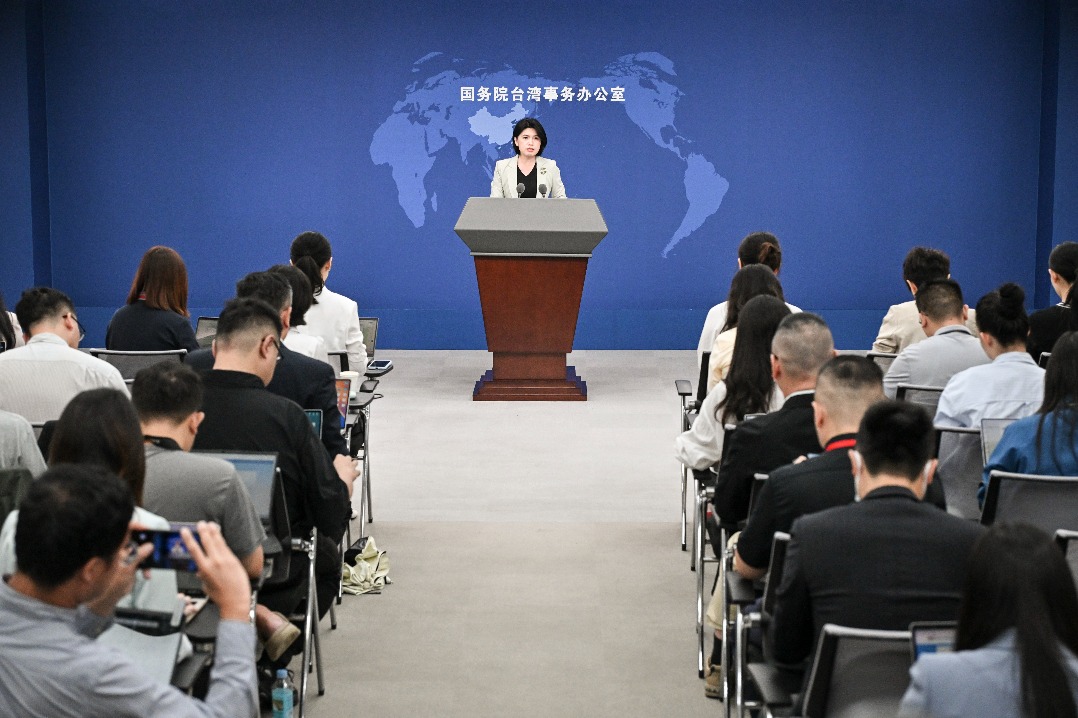Changing minds on mental health
Award-winning psychiatrist is spearheading efforts to develop the sector, Xu Xiaomin reports in Shanghai.

To many people, obsessive-compulsive disorder might seem like a relatively harmless condition characterized by the unusual need for cleanliness and orderliness, but such misconceptions cannot be further from the truth.
In fact, some people with OCD never display such inclinations. Rather, the disorder manifests itself in other ways, such as an irrational fear of contracting an illness or harming through violent means. Such obsessions and compulsions can become so time-consuming and distressing that they cause immense stress to an individual.
In China, OCD affects around 1.5 percent of the population, but the impact of this condition has been profound-an investigation in 2019 revealed that OCD results in 33 billion yuan ($4.78 billion) in economic losses every year.
Wang Zhen, the deputy director of the Shanghai Mental Health Center, knows this all too well. For the last 20 years, he has dedicated much of his time and effort toward a better understanding of this condition that has been labeled "the cancer of mental diseases" by the medical community concerning the long-term prognosis, low rate of full recovery and unknown definitive cause of this mental health condition.
Over the past few years, Wang, who also specializes in research into anxiety disorders and post-traumatic stress disorder, has been focused on researching clinical studies of treatment technique instead of pathogeny theories.
This shift in focus, he says, was partly due to one patient he saw in 2014.
The patient, who was from the Inner Mongolia autonomous region, started a conversation by saying that Wang's clinic would be his last stop as he had experienced little to no improvement in his condition after visiting numerous medical establishments in the country.
"As a psychiatrist, I knew that when he mentioned the words 'last stop', it was likely he would never visit a doctor again and might even give up on life should things fail again," says Wang.
His team's research on treatment techniques has also led to the development of a new solution-an enhanced form of deep brain stimulation surgery for treatment-refractory OCD patients.
Unlike the conventional DBS procedure now practiced in other countries which involves using one electrode to stimulate one location in the brain to regulate abnormal impulses, Wang believes his clinical trial through simultaneously stimulating two locations with one electrode could be more effective.
"We are in the process of clinical trials at present. If we succeed, this will be an exciting step forward that could rewrite the guidelines for the treatment of OCD," he says.
"I derive much happiness from research not just because of the breakthroughs it may bring, but because important findings can bring less pain to people. This is the charm of scientific research."
For his relentless efforts in this field, Wang has been awarded by the city government several times. He is also the recipient of a national award for his outstanding efforts during the fight against the COVID-19 pandemic in Wuhan, Hubei province, in 2020.
More work ahead
Wang is happy to see people's increasing awareness of mental health in recent years, but it also makes the problem of shortage of professional therapists even more prominent.
At the Shanghai Mental Health Center where Wang works, patients often have to wait between three and six months to have regular one-on-one counseling sessions with a psychotherapist every week. Although private clinics offer much faster access, consultations at such places often cost thousands of yuan per hour, making them unaffordable for most locals.
As such, the Shanghai Mental Health Center has been making plans to develop an online platform that would allow more people to receive treatment. When Wang was helping combat the COVID-19 pandemic in Wuhan, his team gained experience in the provision of phone or video counseling to local residents.
Wang's workload is also poised to get heavier as the national health commission announced in July that it set one of the national medical centers of mental disorders at Shanghai Mental Health Center to work with the other two branches in Beijing and Hunan province to lead the development of mental healthcare in the country.
Wang, who described the move as "good news", says the center in Shanghai will be responsible for several important tasks such as developing advanced medical techniques and solving the most difficult mental diseases.
Such initiatives, he adds, would allow China's mental healthcare sector to be of a global level within a decade.
Wang is also keenly involved in efforts to cultivate more mental health talents to address the severe shortage of such professionals in the country.
China currently has more than 50,000 registered psychiatrists, about 1.5 times more than the figure from 10 years ago, but this is still insufficient for a country of its size.
"There is still a lack of awareness and knowledge among the public, and many people are still not seeking professional help because of existing stigmas related to mental issues. I'm also worried that we are short of medical resources," Wang says.
According to epidemic investigations, 16.6 percent of adults in China have had mental issues at least once in their lifetime, and more than 80 percent of people suffering from depression and anxiety have not received proper treatment.
"I hope my job can help prevent more suffering. If we can raise the proportion of people seeking professional treatment from 20 to 50 percent, that would be great," he says.



Today's Top News
- Artificial intelligence can power Xizang's leap into a better future
- Export of trade in services a priority
- SCO helping develop a multipolar world order
- Tajikistan looks to China for deeper ties
- High-tech manufacturing lifts industrial profits
- Avenue blooms with flowers to mark victory






























